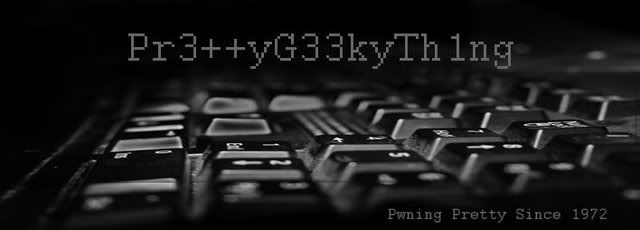Fact -- F. Scott Fitzgerald did more to damage American literature than a tornado in the Library of Congress.
Fact -- F. Scott Fitzgerald has (assisted by union-driven educators) fostered a hatred of reading in this country since 1925, the results of which are seen in our reliance on foreign Blu-Ray DVD players and love of American Idol.
Fact -- F. Scott Fitzgerald admitted that The Great Gatsby was an attempt at making literature an artistic statement.
Fact -- If you have to state that your book is art, it probably isn't.
I am outraged! I just found out that The Great Gatsby is still being assigned as required reading in school! Can you believe that?
Why would this still be as assignment? Sure, when I was in school there were far fewer books from which to choose. There were whole groups of people in the town where I grew up who only acknowledged The King James Bible and The Great Gatsby so my public high school kind of had no choice.
Modern schools have dozens of books they can use. Because I suffered through The Great Gatsby, students today shouldn't have to. The cycle of hatred should have ended years ago. Until I heard last night that people were still having to slog through this piece of crap, I'd assumed schools had put that dark chapter behind them and moved on to books with a point.
Disclaimer -- I've been told numerous times that I just "don't understand" The Great Gatsby or that I'm "putting modern literary sensibilities into an analysis of a great historical piece" or that I'm "an idiot". The inescapable truth is this: The Great Gatsby is an awful book.
I had to read The Great Gatsby in high school. The kindness was that I read it my junior year when I was still too young to drop out of school and move out of my parent's house to wander the world in search of a decent book. Instead, I endured. To its credit, The Great Gatsby made me stronger. Years later I would tell myself while struggling through a 48-hour non-stop project that if I could remain awake for that book, I could put off sleep forever for anything even mildly interesting. The Great Gatsby showed me the limits of human endurance and the ultimate pain of the human existence, but not through the masterful storytelling and compelling characters. The continued publication of this vile work and the infliction of this same book on children illustrates the depravity inherent in our public (state-funded) school systems.
Anyway, I bought a copy at the age of 16 and read it. My report on the book was unflattering and poorly received by my English teacher who may or may not have had some kind of weird man-crush on Nick Carraway. Who could find Nick Carraway attractive? Nick Carraway dated a woman golfer in the 1920's, a relationship obviously based on a need to maintain the appearance of heterosexuality in a less-tolerant time.
But I kept my angrily marked up report tucked into my battered copy of The Great Gatsby and took it off to college with me to place on a shelf in the hopes that having an "American Classic" in my dorm would make me look cooler. You have to remember that a D&D playing Drama Club Officer had only so much cool to work with in the first place.
Our first assignment in American Literature 101 was The Great Gatsby. My copy wasn't good enough. I had to buy it in paperback again from the college bookstore for $25.95. In fairness, my old high school copy looked to have been read a hundred times, though the condition of the book was in reality related to the number of times I'd thrown it into walls and smashed my face into it to keep myself awake.
So, a new shiny copy of The Great Gatsby and a new college-level analysis to be written, I read it again. I thought maybe my mind had matured and that I'd glean some meaning from the pages and my report on the book would reflect this new understanding.
Again, my report was unflattering. But we are supposed to do our own thinking in college, right? The Emperor is wearing an orange-mesh thong! Can't anyone see that?
F.
F-, maybe.
And the note on top questioned whether I'd understood the book at all.
I understand this: The Great Gatsby is still in print. More horrifying, people buy 300,000 copies every year. Think of the trees! The Great Gatsby is a modern ecological tragedy, not the Great American Novel.
Because I heard that some people are still being forced to read it, I'll go through it again here. These answers never worked for me at any level of education, but things may be different now.
Spoiler Alert:
Wash Dies.
The character of Nick Carraway is an almost openly declared proxy for Fitzgerald, who wanted desperately to hang out with the cool people but always felt like he was from some small town in the Midwest and hopelessly outclassed. In desperation, Nick Carraway latches on people who have no value, while Fitzgerald wrote a book with even less.
Daisy and Tom are twisted. Daisy is Nick's second cousin or something vague and distant and Tom is wealthy and if he had a job other than "Former College Football Player" it left mercifully little impact on my long-term memory.
There is a guy down the street (next door?) named Gatsby who has a lot of money and no job at all, so people assume he is a criminal. Gatsby throws awesome 1920's theme parties where people dress like flappers and drive old cars and cram themselves into phonebooths or something, not knowing that this all only became cool after the 20's when everyone started doing it to be Retro.
Also, Gatsby's cufflinks are made out of human molars, which illustrates that he:
A. Has no regard for human life, seeing people as property
B. Got into the most bad-assed bar fight ever and kept his opponent's teeth as a warning to others
C. Needs fashion help to avert a coming Emo-emergency
D. Has the worst Dentist ever
E. All of the above
Gatsby wants Daisy and Daisy is bored with Tom and there is an affair and there is stilted confrontation in multiple driveways and then Daisy runs over a lady who it turns out was sleeping with Tom and Tom tells her husband that Gatsby did it and wears human teeth and eats babies and the husband goes to Gatsby's pool and kills Gatsby in revenge.
Throughout this whole chain of events, I did not care one bit about any of the characters. Around page 40 if the characters had just starting swelling up and bursting like boils I would have reacted the same way as I did to the whole infidelity/murder thing.
I'm not unsympathetic. I develop attachments to fictional characters and get upset when bad things happen to them. I'm fully capable of empathy.
The Great Gatsby offers no opportunity for empathy because it is an awful book. Fitzgerald manages to cram a Lifetime Channel Judith Light Movie Marathon worth of distilled, liquid boring into less than 200 pages.
The Great Gatsby, in two readings, left me forever literarily gimped, unable to read any book which does not feature either dragons or laser swords for the fear that I will have to endure another 1920's party segment where I violently do not give a damn.
The overriding theme present in the book is wanting to belong, as Nick does with Gatsby's crowd and Gatsby does with the established wealthy families, though neither is ultimately able to cross over in any way but superficially. Status and material excess are the goals, but the newly rich wear pink suits and that makes them look dumb, while the established old money families have better taste but are emotionally dead inside -- Not unlike the reader around page 95.
There is symbolism, sure. The trail of ash and the giant all-seeing eyes and the green light, but their only meaning is to keep the reader awake thinking about that while he drags his own ash-encrusted eyes over page after page of this most horrible book.
It is my hope that someday schools will decide to assign something with more value that The Great Gatsby to young readers.
I recommend cereal boxes and anything crammed under my wiper blade when I leave the mall.
"He had come a long way to this blue lawn, and his dream must have seemed so close that he could hardly fail to grasp it."
Shut up, F. Scott. I didn't care then and I don't care now. Gatsby is dead, we can all get on with our lives.







1 comment:
After World War I, the "Lost" generation went crazy. They indulged themselves in material things and lived decadent lifestyles. Although F. Scott Fitzgerald engaged in the "Jazz Age" lifestyle he was always uncomfortable with the lack of morality and the focus on material goods.
The characters "The Great Gatsby" are not sympathetic. In many ways you SHOULD feel apart from them. The author wants you to feel morally superior and horrified by the lifestyle.
By the way, when it was first published "Gatsby" sold fewer than 25,000 copies. It took a generation for people to actually get it. I bet you would like Fitzgerald's first novel, "This side of Paradise" better. Although it skims on some of the same themes, it is a novel which focuses more on philosophy and fining one's self.
Post a Comment